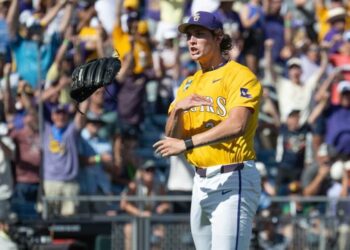A new attempt by former President Donald Trump to reinstate restrictions on international students has sent shockwaves through college campuses across the country—and nowhere is the impact more acute than at elite institutions like Harvard, where international athletes now face a cloud of uncertainty regarding their futures.
At the heart of the controversy is Trump’s renewed push to revive a 2020-era executive order that would limit student visas for those whose programs have transitioned to online or hybrid learning, and more broadly tighten visa requirements for international enrollees. Though currently only a campaign proposal, Trump’s vocal stance has stirred anxiety among international students, particularly athletes who rely on their student status to train, compete, and remain in the United States.
For Harvard, which boasts a diverse athletic program drawing talent from over 50 countries, the potential changes have left coaches, athletes, and administrators scrambling for answers.
Athletes Left in Limbo
Sophia Nilsson, a sophomore rower from Sweden, is among those most concerned. “This isn’t just about sports,” she said. “If I lose my visa, I lose my education, my teammates, everything I’ve worked for.”
Nilsson, like many others, came to Harvard on an F-1 visa, a nonimmigrant student visa that permits full-time academic study in the U.S. It’s a program that has long allowed universities to recruit the best talent from around the world—on the field and in the classroom.
However, Trump’s proposed measures would increase scrutiny on those visas and potentially tie eligibility to a university’s instructional format or national security criteria, both of which could disqualify students without much warning.
“International athletes often live in two worlds—balancing NCAA demands and immigration rules,” said Michael Yu, a senior tennis player from Singapore. “If this policy comes back, we’re the ones stuck in the middle.”
Coaches and Staff Sound the Alarm
Harvard’s athletic department has not issued a formal statement, but several coaches have voiced their concerns privately, noting the disruption it would cause to recruiting and team cohesion.
“We build long-term plans around these athletes,” said one coach, who requested anonymity to speak candidly. “You take away their visa, and suddenly you’re short a starter—and a student. It’s destabilizing.”
The ripple effects extend beyond team rosters. International athletes are often on partial scholarships and contribute significantly to the university’s cultural and competitive landscape. A mass exodus or denial of visas could alter not just team dynamics but also Harvard’s standing in national athletic competitions.
Legal and Academic Repercussions
Harvard, along with MIT, famously challenged Trump’s 2020 executive order in court and won a temporary reprieve that allowed international students to remain in the country even if their courses moved online. Legal experts say another similar policy could meet the same fate—but that’s little comfort for students preparing for the fall semester amid political uncertainty.
“Even the threat of these rules creates chaos,” said immigration attorney Sarah Tomlinson, who has represented student-athletes in the past. “Students don’t know if they can re-enter the U.S. after visiting home. Coaches don’t know if their recruits can even show up.”
Administrators at Harvard are reportedly monitoring the situation closely. “We remain committed to supporting our international students,” a university spokesperson said. “Their presence enriches our community in countless ways, including in athletics.”
Recruiting Takes a Hit
The uncertainty is already affecting future recruiting. Several high school athletes from Canada and Europe, contacted by Ivy League programs including Harvard, expressed hesitation about committing to U.S. schools with political instability around immigration.
“If I can’t be sure I’ll be allowed to stay all four years, I may have to consider universities in the U.K. or Australia,” said Tomas Farkas, a Hungarian swimmer who had been in talks with Harvard and Princeton.
Political Implications
Trump’s campaign has doubled down on immigration as a central issue heading into the 2024 election, and student visas—particularly from countries deemed “high-risk”—are likely to remain a flashpoint.
While current regulations remain unchanged, the looming threat has already had a chilling effect. For international athletes like Nilsson, who came to Harvard for its unparalleled blend of academic and athletic opportunity, the prospect of being forced to leave is deeply unsettling.
“I’m doing everything right,” she said. “I train hard, I study hard, I contribute to my team and this school. And yet, my future might be decided by politics I can’t control.”
For now, Harvard’s international athletes remain in place, but with every campaign speech and legal challenge, the ground beneath them grows less certain. As the 2024 election approaches, they are left to prepare, compete, and hope that their dream of studying and playing in the U.S. doesn’t end at a policy desk in Washington.











